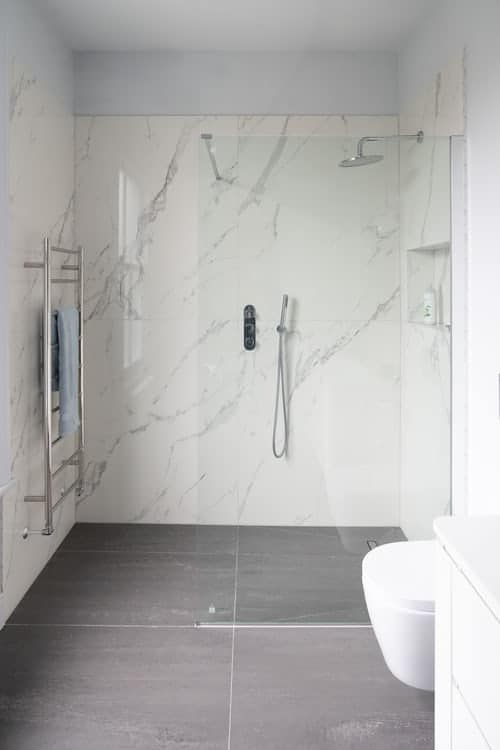As we navigate the era of sustainable living, the drive for greener, more efficient homes is becoming a mainstream priority. Real estate developers are leaning towards eco-friendly designs which incorporate energy-efficient appliances as a key component in their projects. But how do you choose the right appliances that align with your project’s green ethos and contribute to its efficiency? In this article, we shed light on various factors that need careful consideration while selecting appliances for your energy-efficient building.
Understanding Energy Efficiency
To start with, one must understand what energy efficiency implies. In simple terms, it means using less energy to accomplish the same task. Energy-efficient appliances complete their functions using less energy and thus reduce the overall energy consumption of the homes. They not only help in bringing down utility bills but also contribute to the sustainable usage of resources.
In parallel : What Are the Tax Implications of Buy-to-Let Investments Post-Brexit?
When choosing these appliances, the Energy Star label is an excellent place to start. Energy Star is a program run by the U.S. Environmental Protection Agency and the Department of Energy, which certifies and labels products that are environmentally friendly and energy-efficient. Appliances with this label have been tested for energy usage and efficiency, and they may use anywhere from 10-50% less energy or water than their conventional counterparts.
Key Energy-Efficient Appliances for your Building
Now that we understand what energy efficiency means let’s delve into the types of appliances that should be on your radar for your eco-friendly project.
Also read : What Are the Latest Techniques for Flood-Proofing Urban Residential Properties?
Heating Systems
One of the significant areas of energy consumption within buildings is heating. Traditional heating systems are often energy guzzlers; therefore, it is wise to consider energy-efficient alternatives such as solar water heaters or geothermal heat pumps. Solar water heaters use solar energy to heat water, reducing the need for gas or electricity. On the other hand, geothermal heat pumps utilize the stable underground temperature to provide heating, cooling, and even water heating, making them extremely versatile and efficient.
Lighting Solutions
Lighting significantly contributes to a building’s energy consumption. Energy-efficient lighting solutions such as LED (Light Emitting Diode) and CFL (Compact Fluorescent Light) bulbs are great alternatives. They consume less electricity and have a longer lifespan compared to traditional incandescent bulbs. Additionally, incorporating natural lighting in the building design can significantly reduce dependence on artificial lighting, contributing further to energy savings.
Kitchen Appliances
Kitchen appliances like refrigerators, dishwashers, and ovens form an integral part of any home. Choosing energy-efficient models significantly reduces the energy load of the building. For example, choosing a refrigerator with an Energy Star rating can reduce energy usage by up to 40%.
Optimizing Appliance Usage for Greater Efficiency
While choosing energy-efficient appliances is crucial, so is optimising their usage. Here are a few strategies:
Load Consideration
Running appliances at full capacity can save energy. For example, wait until the dishwasher or washing machine is full before running a cycle. This strategy reduces the number of cycles and thus, the energy used.
Regular Maintenance
Regular maintenance can ensure that your appliances are running at their peak efficiency. For instance, regular servicing of air conditioning units can help maintain their efficiency and extend their lifespan.
Intelligent Design
Intelligent design strategies, such as the strategic placement of appliances, can also contribute to energy savings. For example, placing the refrigerator away from the stove can prevent it from needing to work harder to stay cool.
Incorporating Renewable Energy
In addition to using energy-efficient appliances, integrating renewable energy systems into your building design can significantly boost its green credentials. Solar panels, for example, can be used to generate electricity for the building, further reducing reliance on the grid.
Solar power is a sustainable, renewable source that significantly reduces carbon emissions. Similarly, wind energy can also be harnessed, depending on the location and feasibility of the project.
In conclusion, selecting energy-efficient appliances for your green real estate project is not just about picking the right products. It’s about understanding energy efficiency, making strategic design choices, and optimising usage and maintenance. While the initial cost may be higher, the long-term savings in energy consumption and the positive impact on the environment make it a worthwhile investment. With the right choices, you can effectively contribute to the global sustainability effort, enhancing the appeal and value of your real estate project.
Strategic Home Design for Energy Efficiency
In addition to choosing energy-efficient appliances, strategic home design can significantly boost the energy efficiency of your real estate project. This involves making smart design choices that align with the principles of green building and environmental sustainability.
Optimal Insulation
One crucial design factor to consider is insulation. Effective insulation reduces the need for excessive heating or cooling, therefore reducing energy consumption. Insulation materials should be chosen based on their R-value, a measure of their resistance to heat flow. Materials with a higher R-value provide better insulation.
Window Placement and Selection
Window placement and selection are also integral to an energy-efficient design. South-facing windows can help in harnessing solar heat during winter. Double-glazed windows and those with an Energy Star rating can further enhance energy savings by reducing heat loss.
Environmentally-Friendly Building Materials
Using environmentally-friendly building materials is another way to enhance the energy efficiency of your project. Materials such as recycled steel, bamboo, and cork are sustainable alternatives to conventional building materials. They not only reduce the environmental impact of construction but also contribute to the overall energy efficiency of the building.
The Future of Green Real Estate Projects
The future of green real estate projects is promising, with increasing awareness about the importance of sustainability and the rise of innovative green technologies. But what does this future look like, and how do energy-efficient appliances fit into this picture?
Smart Appliances
The future of efficient appliances lies in smart technology. Smart appliances can be controlled remotely and programmed to function at off-peak hours, leading to significant energy savings. They also provide real-time feedback on energy usage, allowing homeowners to make informed decisions about their energy consumption.
Integration of Renewable Energy Sources
Integration of renewable energy sources like solar and wind energy into the building design is another trend shaping the future of green real estate. Homes of the future might have built-in solar panels or wind turbines to generate electricity. Battery storage systems could also become mainstream, enabling homes to store and use the energy generated by these renewable sources.
Net-Zero Buildings
The ultimate goal of green real estate is to achieve net-zero buildings – buildings that produce as much energy as they consume. This can be achieved through a combination of energy-efficient design, appliances, and renewable energy systems.
Conclusion
Choosing energy-efficient appliances for your green real estate project is a combination of understanding energy efficiency principles, making strategic design choices, optimizing appliance usage, and considering the incorporation of renewable energy sources. By making these informed decisions, you can reduce energy consumption, contribute to environmental sustainability, and create highly desirable green buildings.
While the upfront costs might be higher than conventional projects, the long-term energy savings, reduced greenhouse gas emissions, and the positive societal perception towards sustainable practices make this a worthy investment. Additionally, as the demand for sustainable living continues to grow, green real estate projects will continue to hold and increase their value over time, making them a smart investment for the future.











